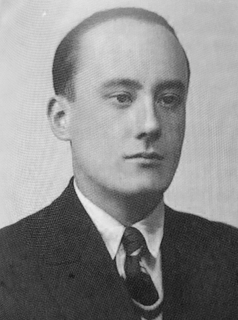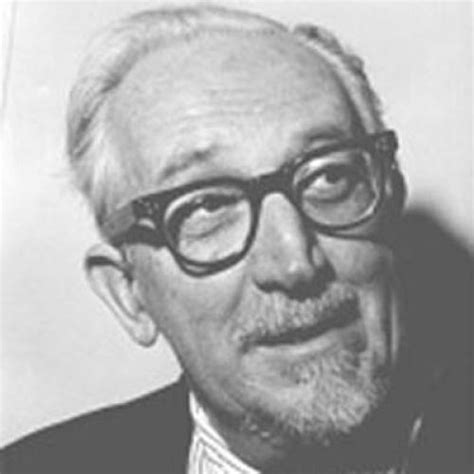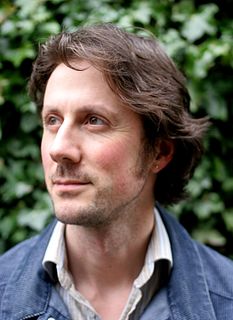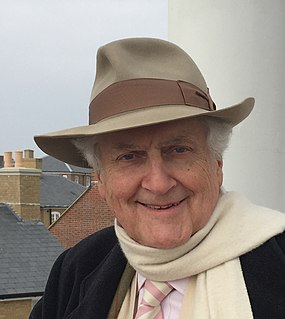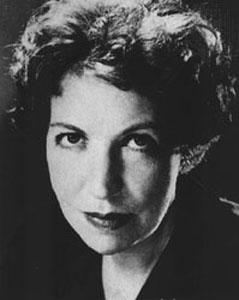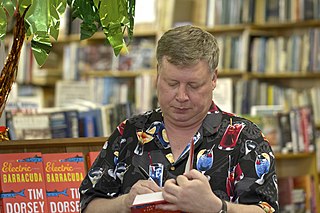Top 214 Utopian Quotes & Sayings - Page 4
Explore popular Utopian quotes.
Last updated on December 18, 2024.
Education as a democratic project always presupposes a vision of the future in its introduction to, preparation for, and legitimation of particular forms of social life. It is utopian in its goal of expanding and deepening the ideological and material conditions that make a democracy possible. As a moral and political practice, education produces the modes of literacy, critique, sense of social responsibility, and civic courage necessary to imbue young people with the knowledge and skills needed to enable them to be engaged critical citizens willing to fight for a sustainable and just society.
For example, you now look at pictures from 1968, they are hugely misleading in terms of standing in as an absolute image of the time. Because maybe two percent of the people looked the way that we now associate with that time. I was also aware that what I was aiming for is an idealized, utopian version of how people could be together. I found photography to be a very powerful tool because as long as it looks real, it is perceived as real.
What interests me is to paint the kind of antisensitivity that impregnates modern civilization. I think art since Cezanne has become extremely romantic and unrealistic, feeding on art. It is Utopian. It has less and less to do with the world. It looks inward - neo-Zen and all that. Pop Art looks out into the world. It doesn't look like a painting of something, it looks like the thing itself.
Militarists say that to gain peace we must prepare for war. I think we get what we prepare for. If we want a world where peace is valued, we must teach ourselves to believe that peace is not a ‘utopian vision’ but a real responsibility that must be worked for each and every day in small and large ways. Any one of us can contribute to building a world where peace and justice prevail.
The vision shared by both [French utopian] Charles Fourier and Robert Owen was for an entire town to fit into one structure. Owen's design for what he called a "parallelogram" was essentially to have a whole city in one building, laid out around a huge quadrangle. Fourier's scheme was to build a massive Versailles-like structure that he called a "phalanstery." In both cases they had these architectural dreams that we now recognize as pretty unappealing.
Detroit is a fascinating place, because things are so bad there that the dystopia has almost become utopian. People know they can't rely on the state, that public infrastructure is broken, and they've taken their own measures. People are growing their own food and selling their produce to local stores and restaurants. It's certainly not a fix-all; Detroit's problems are too deep-rooted for quick-fix solutions. But it's a hopeful sign. Detroiters are crafting their own solutions rather than being passive in the face of the city's and state's actions and inactions.
To be hopeful in bad times is based on the fact that human history is not only of cruelty, but also of compassion, sacrifice, courage, kindness. If we see only the worst, it destroys our capacity to do something. If we remember those times and places where people have behaved magnificently, this gives us the energy to act. And if we do act, in however small a way, we don't have to wait for some grand Utopian future. The future is an infinite succession of presents, and to live now as we think human beings should live, in defiance of all that is bad around us, is itself a marvelous victory.
When we generate utopian visions and hope to make them happen soon – when we elect Barack Obama and expect all our problems to be solved, and solved quickly, by his presidency – the outcome is both predictable and tragic. That is not the way to engage social change in a democracy. And it is not the way to help democracy itself survive and thrive. Democracy is a non-stop experiment. Each generation must help sustain it, which means being in it day-by-day for the long haul.
The hermeneutic consciousness, which must be awakened and kept awake, recognized that in the age of science philosophy's claim of superiority has something chimerical and unreal about it. But though the will of man is more than ever intensifying its criticism of what has gone before to the point of becoming utopian or eschatological consciousness, the hermeneutic consciousness seeks to confront that will with something of the truth of remembrance: with what is still and ever again real.
I try to look at the evolution of these utopian claims. In the late '60s there was an assumption that the wealth generated by industry would be taxed and then put into social programs and it would provide a baseline of stability that would allow people to have the time for self-expression; and that social contract has eroded over the last four decades and now it's every person for themselves.
To call oneself a libertarian marxist today is not to look backwards but to be committed to the future. The libertarian marxist is not an academic but a militant. He is well aware that it is up to him to change the world - no more, no less. History throws him on the brink. Everywhere the hour of the socialist revolution has sounded. Revolution - like landing on the moon - has entered the realm of the immediate and possible. Precise definition of the forms of a socialist society is no longer a utopian scheme. The only utopians are those who close their eyes to these realities.
[Walt] Whitman and [humanist educator John] Dewey tried to substitute hope for knowledge. They wanted to put shared utopian dreams - dreams of an ideally decent and civilized society - in the place of knowledge of God's Will, Moral Law, the Laws of History, or the Facts of Science.... As long as we have a functioning political left, we still have a chance to achieve our country, to make it the country of Whitman's and Dewey's dreams.
This oppressor/oppressed cultural Marxist thing is you're an authentic woman and an authentic black even only if you support liberal causes. If you are a woman, if you are a Hispanic, if you are black, and you abide by a value system that believes in limited government and constitutional principles, you are an apostate to the utopian ideals of the left, and you are not protected, and you are pilloried, and that is why I became a conservative because I thought it was fundamentally unfair, fundamentally un-American.
I am convinced that love is the most durable power in the world. It is not an expression of impractical idealism, but of practical realism. Far from being the pious injunction of a Utopian dreamer, love is an absolute necessity for the survival of our civilization. To return hate for hate does nothing but intensify the existence of evil in the universe. Someone must have sense enough and religion enough to cut off the chain of hate and evil, and this can only be done through love.
There is this fashionable progressive notion that everything is so completely political that the idea we could have some sort of neutral legal process is practically utopian - because we all know that the more money you have, the more rights you can exercise in this society. But I don't think that you deal with income inequality by limiting the First Amendment rights of affluent people. I'd rather see people screw around with the tax code to redistribute wealth a little bit than screw around with the First Amendment.
The Anarchists' uncompromising rejection of the State, the subject of Marxian sneers for its "absolutist" and "Utopian" character, makes much better sense in the present era than the Marxist relativist and historical approach. The pacifists also seem to be more realistic than the Marxist both in their understanding of modern war and also in their attempts to do something about it.
What does interest me is how difficult my culture seems to find it to look the dark side of life directly in the eye. It seems to me that if we look back at mediaeval culture, for example, we see a society which faces the reality of death and pain and limitation, because it has to. Our society, which is progressive and technological and seems to have a slightly fanatical utopian edge to it, gets very uncomfortable when anybody highlights the dark side of humanity, or the world we have built, or what we are doing to the rest of life on Earth.
You need a prince to make a town in an intellectual sense. Developers want to make money. If they cared about architecture, they'd become architects. I've had so many projects that never came off because they had no sponsor, and not because they were utopian. I just want to build a town that's normal.
Look back on the utopian dreams of the previous century, or even the century before that, where people thought machines would ultimately give us a quality of life where our needs would be taken care of so we could all basically be artists together in the evening, after we had fished, hunted, raised cattle - or whatever it was Marx imagined for us.
The fatal error of much science fiction has been to subscribe to an optimism based on the idea that revolution, or a new gimmick, or a bunch of strong men, or an invasion of aliens, or the conquest of other planets, or the annihilation of half the world--in short, pretty nearly anything but the facing up to the integral and irredeemable nature of mankind--can bring about utopian situations. It is the old error of the externalization of evil.
Socialist thought owes its appeal to the young largely to its visionary character; the very courage to indulge in Utopian thought is in this respect a source of strength for socialism which traditional liberalism sadly lacks. Speculation about general principles provides an opportunity for the play of the imagination of those who are unencumbered by much knowledge of the facts of present-day life. Their ideas suffer from inherent contradictions, and any attempt to put them into practice must produce something utterly different from what they expect.
Political philosophy is realistically utopian when it extends what are ordinarily thought to be the limits of practicable political possibility and, in so doing, reconciles us to our political and social condition. Our hope for the future of our society rests on the belief that the social world allows a reasonably just Society of Peoples.
Books are surviving in this intense, fragmented, hyper-accelerated present, and my sense and hope is that things will slow down again and people will want more time for a contemplative life. There is no way people can keep up this pace. No one is happy. Two or three hours to read should not be an unattainable thing, although I hope we get to that stage without needing a corporate sponsored app to hold our hand. The utopian in me has my fingers crossed that we haven't quite figured out the digital future just yet. After all, the one thing we know about people: they always surprise.
There are some good things to be said about walking. Not many, but some. Walking takes longer, for example, than any other known form of locomotion except crawling. Thus it stretches time and prolongs life. Life is already too short to waste on speed. I have a friend who's always in a hurry; he never gets anywhere. Walking makes the world much bigger and thus more interesting. You have time to observe the details. The utopian technologists foresee a future for us in which distance is annihilated... To be everywhere at once is to be nowhere forever, if you ask me.
Roddenberry had his own utopian vision about he perfectibility of man, and I never really believed that. And I don’t think the show demonstrates that. I think it is about gunboat diplomacy. In the final analysis, the Enterprise fires. They’re always shooting and bringing civilization, and coming to worlds where they don’t approve of tyrannical enterprises – no pun intended – and they substitute their own quote unquote enlightened version of how society is supposed to work, which is essentially American.
It is clear that several countries, in the Balkans for example, need to be considered countries of safe origin. But others like, in my opinion, Eritrea, undoubtedly need to be considered a country of origin with a valid claim to asylum. And with a third group of states, like Nigeria for example, each individual case needs to be evaluated. Then there are also very controversial cases like Afghanistan. In any case, united European action is needed. This argument for Europeanization may sound utopian, but there is no alternative.
Digital technologies are setting down the new grooves of how people live, how we do business, how we do everything--and they're doing it according to the expectations of foolish utopian scenarios. We want free online experiences so badly that we are happy to not be paid for information that comes from us now or ever. That sensibility also implies that the more dominant information becomes in our economy, the less most of us will be worth.
There is this thing called the university, and everybody goes there now. And there are these things called teachers who make students read this book with good ideas or that book with good ideas until that's where we get our ideas. We don't think them; we read them in books. I like Utopian talk, speculation about what our planet should be, anger about what our planet is. I think writers are the most important members of society, not just potentially but actually. Good writers must have and stand by their own ideas.
I was really interested in 20th century communalism and alternative communities, the boom of communes in the 60s and 70s. That led me back to the 19th century. I was shocked to find what I would describe as far more utopian ideas in the 19th century than in the 20th century. Not only were the ideas so extreme, but surprising people were adopting them.
I'm an anxious person in general, but something about being pregnant and awaiting the release of my first book, The Monsters Of Templeton, made me into an insane anxious person. I didn't sleep at night. I ended up sleeping all day. In a strange way I felt like the world was going to end. I found myself so deeply depressed at times that I started to read about happiness, and that took me into books about idealism and utopianism. Reading books about people who tried to build utopian societies of different kinds gave me a kind of lift.
The system - the American one, at least - is a vast and noble experiment. It has been polestar and exemplar for other nations. But from kindergarten until she graduates from college the girl is treated in it exactly like her brothers. She studies the same subjects, becomes proficient at the same sports. Oh, it is a magnificent lore she learns, education for the mind beyond anything Jane Austen or Saint Theresa or even Mrs. Pankhurst ever dreamed. It is truly Utopian. But Utopia was never meant to exist on this disheveled planet.
Because the utopian's worldview was framed around moving toward this perfected future, it helped stimulate the private exertions that add up to social progress. Progress is work. People need to build things and sacrifice and have a harder life for things to get better. On its own, I don't think even the most brilliant critique stimulates that kind of effort as well as an appealing vision of the future.
But you have to understand, mental illness is like cholesterol. There is is good kind and the bad. Without the good kind- less flavor to life. Van Gogh, Beethoven, Edgar Allen Poe, Sylvia Plath, Pink Floyd (the early Piper at the Gates of Dawn line up), scientific breakthroughs, spiritual revolution, utopian visions, zany nationalism that kills millions- wait, that’s the bad kind. Tim Dorsey (Hurricane Punch)










